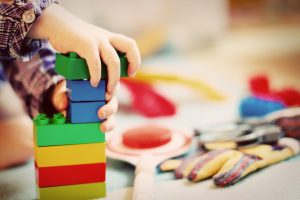

A guide to primary school
From the foundations of reading and writing to understanding their position within the world, the primary school curriculum covers a lot of ground in seven short years.
Comprising three defined stages, it includes a focus on the five major learning areas of English, Mathematics, Science, History and Geography, while setting up the skills for your child to further explore wider learning in high school.
Here’s a guide to what your child learns during the defined stages of primary school.
Kindergarten – Early learning Stage 1
Kindergarten is as much about familiarising your child with the idea of school as it is about establishing the initial building blocks of learning.
Described as early stage 1 learning it focuses around five learning outcomes:
1 Children have a strong sense of identity.
2 Children are connected with and contribute to their world.
3 Children have a strong sense of wellbeing.
4 Children are confident and involved learners.
5 Children are effective communicators.
Within this year children learn about sounds, letters and writing, while touching on punctuation. They will be encouraged to develop verbal communication skills and become active listeners.
They will also explore numbers including measuring and mathematical discovery, while learning about their natural environment as the basis for science.
Family and personal histories are explored to familiarise children with history, and how and where people live forms the building blocks of geography.
Years 1 and 2 – Stage 1Still classed as Stage 1 learning, Years 1 and 2 builds on the language and numerical skills attained in kindergarten. A strong focus remains on reading and writing as children explore more complex texts and written tasks.
Mathematics focuses on the language, actions and symbols of maths in everyday life, while using strategies, measurement and records to calculate mathematical outcomes. Children are exposed to more complex mathematical tasks like division, fractions, shapes, mass and time during this stage.
Science involves looking to the environment around them and discovering natural landscapes and the way objects interact. It further explores how items are built for specific purposes related to their environment.
Meanwhile history has a focus on their local community, significant places and events, and geography explores the features of local spaces and how people engage with them.
Year 3 and 4 – Stage 2With foundational writing and mathematical skills under their belt, children are encouraged to explore their learning further throughout the Stage 2 framework.
During these two years children focus on storytelling, handwriting, and further grammar and punctuation, along with using different technology to complete writing tasks.
Mathematics extends to data, algebra and angles, along with more complex multiplication and division. They are also encouraged to think in two dimensions and three.
Earth, space and built environments are among the topics covered as they expand their scientific knowledge while also working with technology.
History extends to first contacts and remembrance, while geography covers the earth’s environment and how paces can be similar yet different.
Year 5 and 6 – Stage 3In their final years of primary school, attention turns to independent work practices as well as working in groups to complete projects.
Reading remains a major foundation of the curriculum, but children are encouraged to use language in ways that entertain yet inform. Now reading also recognises different points of view and illustrates how to form an argument through research.
By the end of this stage students will also have a variety of mathematical tools under their belt which allow them to form theories and utilise different strategies to achieve results. They will be conversant in mathematical language, and be able to plot data and results, while also dealing with probability.
Science also includes a focus on probable outcomes, with students again working independently and in groups to conduct experiments, form theories and gauge outcomes. The natural and made environments are the basis for much of this learning, and their understanding of technology and its design also increases. They compare and classify objects based on their properties to determine their use.
History is covered with an Australian and global context, extending from colonial experiences to Federation, immigration and the indigenous experience. Timelines are used to chart events.
Meanwhile, geography encourages the understanding of diverse characteristics of environments across local and global scales. During this stage they use strategies to collect, identify and record data that relates to their environment.
The final tutorialThe primary school years allow children to explore earning in relation to their experience of the world, building a more global picture and deeper understanding as they progress through the years. By the end students are equipped to be independent thinkers and group contributors, prepared to take on the more challenging tasks of high school.
About ChalkwallFor over 25 years Chalkwall has assisted students as they embrace their learning journey. For more information about our tutoring services, see here, or contact us for further advice.

- Business Name
- Chalkwall - Make Your Mark
- Business Category
- Education & Learning
- Official Website
- chalkwall.com.au
- Social Links
- Phone Number
- (02) 8017 0300
- Business Location
- Harrow Rd
Auburn 2144
New South Wales
Australia





